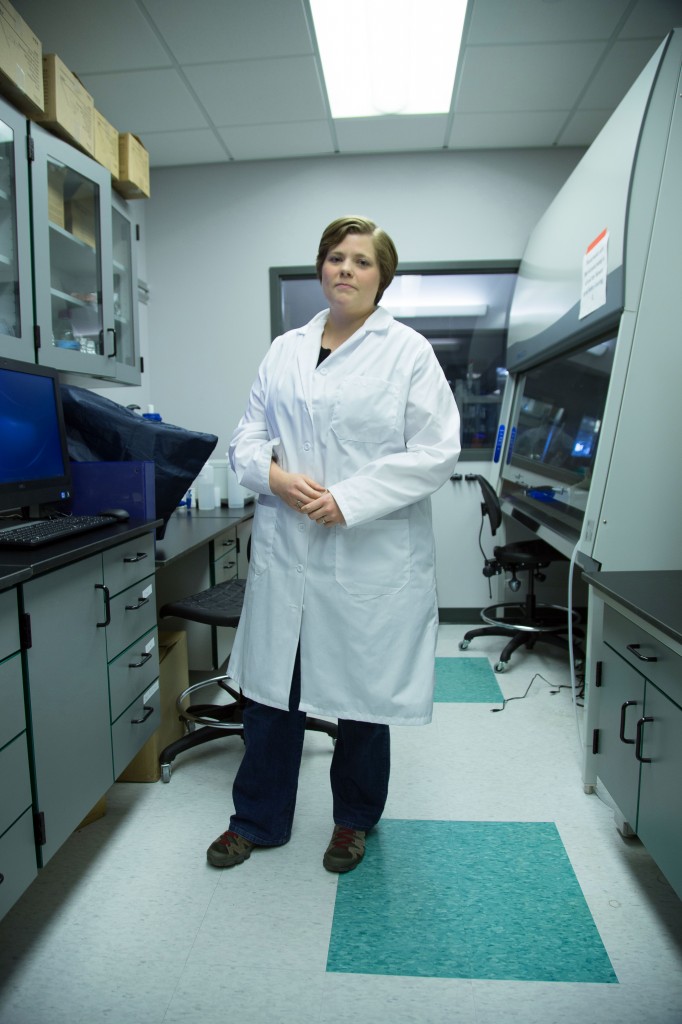
Thanks to one Binghamton University professor’s research, doctors may one day be able to strike at the heart of atherosclerosis, a cardiac disease.
Amber Doiron, an assistant professor of bioengineering at BU, received a grant for over $400,000 from the National Institutes of Health for the development of new detection methods for atherosclerosis.
Atherosclerosis, a complex disease that can cause heart attacks and strokes, occurs when artery walls thicken due to the accumulation of fatty deposits.
“Pretty much everyone has atherosclerosis,” Doiron said. “Even 6-month-old infants have started to develop plaque. But the problem comes in when the disease gets advanced and the plaque can actually burst open within one’s artery and can cause a blood clot to form. That blood clot is what fills the artery and blocks off flow, which is what a heart attack or stroke actually is.”
Doiron’s nanoparticle would be able to detect at-risk patients so that they can be more effectively treated.
“What we are concerned with is identifying patients at the highest risk for having a heart attack or stroke,” Doiron said.
The project, titled “Iron Oxide Based Polymer Nanocomplex for Functional Detection of Atherosclerosis,” aims to develop nanoparticles, or particles between one and 100 nanometers in size, that would detect atherosclerosis.
“The nanoparticle is designed as a contrast agent, meaning that it shows up dark on an image when someone gets an MRI, and it shows up only in the presence of plaque,” Doiron said.
Doiron conducts her research in the bioengineering building on campus with the assistance of multiple undergraduate students and one graduate student. The project is in collaboration with Omar Fisher, a professor of bioengineering at Temple University.
Doiron explained that the project is still in its early stages.
“We have made some early iterations of the particle,” she said. “It needs some fine-tuning, but we are excited because it’s a kind of new idea in the field, and hopefully it will work and we will test it on humans one day.”
Professor Doiron said her goal is to help some of the 800,000 Americans who die because of cardiovascular-related diseases every year.
According to a recent study by the Centers for Disease Control and Prevention, 200,000 of these 800,000 patients could be saved by preventable measures, such as medicine or changes in diet.
“For a lot of people, having a heart attack is only their first sign of trouble. They don’t have any symptoms leading up to it, and they just kind of have a heart attack out of the blue,” Doiron said. “We want to be able to better inform doctors about their patients when this is occurring so they can prevent these terrible events from happening.”
Allie Wong, an undeclared sophomore, said she was surprised when she heard about the grant and research.
“It’s awesome that students have the opportunity to be a part of such advanced research,” she said.
This was Doiron’s first grant, although she is currently working on two other projects, both of which focus on nanoparticles.


